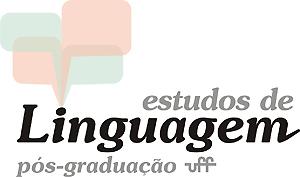LINES OF RESEARCH
LINE OF RESEARCH 1:
Linguistic Theory and Analysis
Language Structure and its usage patterns. Linguistic description: synchrony and diachrony. Cognition and language. Stabilization, variation and linguistic change. Lexicon and grammar. Theoretical and methodological perspectives of linguistic studies. Language education.
LINE OF RESEARCH 2:
TEXT, DISCOURSE AND TRANSLATION THEORIES
Theoretical perspectives of text, discourse and translation studies. Verbal language and other languages. Discourse and enunciation. Discourse and inter-discourse. Factors of textual organization. Text genre and spheres of circulation of discourses. The contribution of text, speech and interaction studies to specific discursive contexts. Language education.
LINE OF RESEARCH 3:
HISTORY, POLITICS AND LANGUAGE CONTACT
Linguistic ideas, grammatization and meta-historiography. The social and political construction of languages. Language, State, Society and Borders. Linguistic diversity management and standardization processes. Linguistic and cultural identity. Linguistic representations and uses. Ethics and linguistic rights. Linguistic education.
SUBJECTS
THEORETICAL-METHODOLOGICAL FOUNDATIONS OF LANGUAGE STUDIES (required for the Master’s Course)
The evolution of ideas and linguistic theories in the West. The relationship between theoretical perspective and methodological perspective in the sciences of language from a formal, functional and discursive standpoint. The state of the art in linguistic research: trends and challenges.
The language/society relationship. Stability and linguistic heterogeneity. Factors affecting phonological, morphosyntactic and discursive-pragmatic variation. Variation in the individual and the community. Functionalist view of language. The speech and grammar interface in the functional perspective. Relationships between functional grammar and cognitivism.
Cognition and grammar. Cognitive processes of language production and reception. Language acquisition. Language and other cognitive domains. Theoretical and methodological issues on language and cognition research.
Description and linguistic analysis. Variation and linguistic change. Grammaticalization and stabilization processes along the trajectory of languages. The complexity of the function vs. form correlation. Grammatical studies and teaching/learning.
SEMANTIC-PRAGMATIC ASPECTS OF LANGUAGE
Syllabus: Meaning and language use. Pragmatic functions and speech organization. Categories, concepts and meanings. Metaphor and metonymy. Deixis and referentiation. Cognitive perspectives of semantics and pragmatics.
Language and speech: effects of meanings. Ideology and the unconscious. Discursive and inter-discourse formation. Formulation and constitution of utterances. Discursive event. Discursive construction of reference, historicity, and discursive memory. Silence and silencing policies. Discursive practices. Construction of the analysis device: cutting, understanding, interpretation.
INTERACTIONAL DISCOURSE ANALYSIS
From pragmatics to the interactionist perspective. Interlocutive situation: event, script, schema, interactive frame. Social practices and discourse genres. Interpersonal relations: expectations, changes, conflict, negotiation, face, politeness and discursive ethos.
Text and semiotic practices. Narrative, aspectualization and modality. Semantic and syntactic components of discourse. Argumentation and rhetorical mechanisms of speech. Expression categories in visual languages. Relations between languages, intersemiotic translation and interaction regimes. Perception, body and production of meaning.
Concepts and scope of the notion of text. Genre and text typology. The communication contract in Semiolinguistic Theory. Sociolinguistic structuring and the methodological framework. The circuits of the speech act. The process of semioticization of the world: language and speech categories. Discursive skills. The linguistic and the situational. Media discourse. Political discourse. Credibility and legitimacy. Modes of speech organization. Utterance and modality mechanisms.
Linguistic ideas: production and circulation; institution and disciplining. Grammatization and language tools. Language, Nation, State: political-ideological implications in languages and in knowledge about languages. The political in language; language policies; border languages. Linguistic colonization; linguistic heterogeneity; memory of languages. The Portuguese language in Brazil: Brazilian-Portuguese, Brazilian language. The Portuguese language in the post-colonial context. Ethics of languages.
Bilingualism, multilingualism/plurilingualism: linguistic and cultural identity; linguistic uses; interculturalism. Eco-linguistics: the relationship between language and the environment in colonization and migratory contexts; political and geographical boundaries and linguistic contexts; eco-linguistics and language teaching. Linguistic pluri-centrism: national, regional and dialectal varieties. Variety and language change in the contact perspective.
Language policy, glottopolitics, linguistic planning. Representations and linguistic ideologies. Corpus planning: creation of standards, codification and development of languages. Status planning: personality principle and territoriality. Liberalism and linguistic interventionism. Official language, national and international language. Language policy and education. Linguistic rights.
The construction of linguistic knowledge; meta-historiography: principles and methodology; grammatization; history of linguistic studies in Brazil; grammaticography of Portuguese and Brazilian indigenous languages; missionary linguistics; cycles of linguistic studies: pathways, continuities and ruptures; files and linguistic documentation; formation of the linguist and historian of linguistics.

